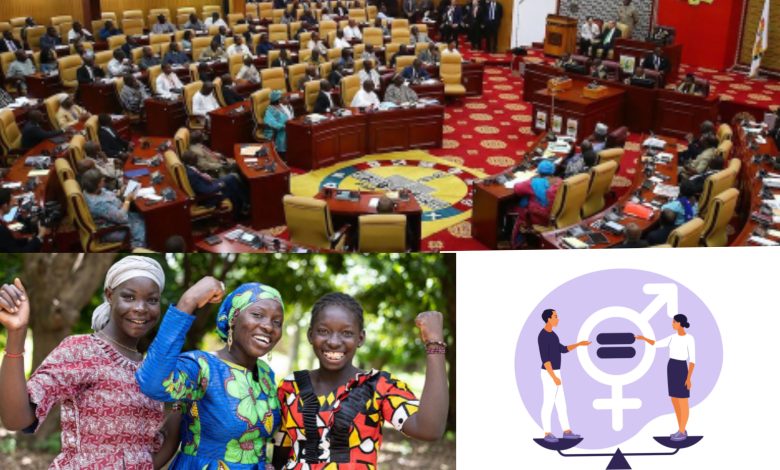
Ghana’s parliament on Tuesday July 30, 2024 passed the Affirmative Action Bill, marking a significant step towards achieving gender equality in the country.
This landmark legislation aims to address the long-standing social, cultural, economic, and political gender imbalances that have hindered women’s progress in Ghana.

What does the bill entail?
The Affirmative Action Bill seeks to promote gender equity in both the public and private sectors, ensuring that women have equal opportunities to participate in decision-making processes and hold public positions of power. The bill consists of 34 clauses and six schedules, outlining a framework for achieving a 50/50 representation of women and men in governance and all spheres of life.
Impact on Society
The passage of this bill is expected to have far-reaching consequences for Ghanaian society. It will:
-Promote gender equality: By addressing historical discrimination and promoting equal representation, the bill will help to break down barriers that have prevented women from reaching their full potential.
– Empower women: The bill will create opportunities for women to take on leadership roles, participate in decision-making processes, and contribute to the country’s development.
– Challenge societal norms: By challenging traditional gender roles and stereotypes, the bill will help to create a more inclusive and equitable society.
The bill now awaits presidential assent to become a law. Once enacted, it will be crucial to ensure effective implementation and monitoring to achieve the desired impact.
Ghana’s parliament has taken a significant step towards achieving gender equality with the passage of the Affirmative Action Bill. This milestone legislation has the potential to transform the lives of Ghanaian women and contribute to a more inclusive and equitable society.
As we look forward to the bill’s implementation, we must continue to advocate for gender equality and challenge societal norms that perpetuate discrimination.




